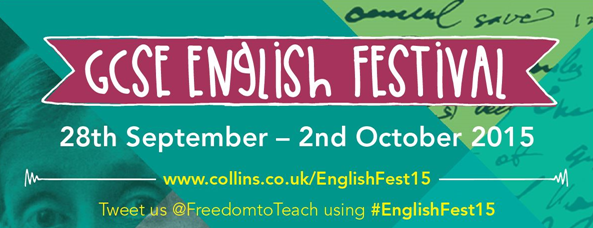Find out more about Collins GCSE English Festival here.
There’s a moment in ‘Touching the Void’ when Joe, badly injured, describes his discovery of a meticulous ‘pattern of movements’; a way of travelling slowly but effectively across an inhospitable landscape. Ultimately he transforms a task that seems daunting – to say the least – into something that is achievable. Without wishing to compare the prospect of preparing students for their new English GCSEs to a perilous trek across icy terrain, it does feel as if Joe’s approach might have something useful to offer in terms of tackling the challenge of new specifications, particularly with regard to monitoring students’ progress through the course and preparing them for the terminal assessment.
Negotiating uncharted territory can be unnerving for teachers and students alike. However, applying the different aspects of Joe’s approach to the challenges we, and our students, are likely to encounter in the months ahead, may prove useful.
Small steps
One of the most daunting tasks in English, especially for less able students, is, arguably, that of producing extended writing. We all know that many students struggle to sustain and develop their ideas at length, and this is where the notion of building from a small unit can be useful. Particularly with writing-based questions, giving students the opportunity to produce a specific, well-considered paragraph (varying the paragraph chosen: early/late/mid-piece is helpful) can increase confidence and also yield a quick and focused assessment opportunity for teachers, especially as many of the key strengths and weaknesses of a student’s writing tend to be evident even within a few sentences. With regard to these paragraphs, it may be useful to switch the assessment focus regularly, so that the writing task can be preceded by working explicitly on different aspects of punctuation, word choice, or spelling – whatever is most beneficial in terms of developing students’ skills.
Once students have built up a bank of paragraphs, the focus can shift to creating cohesion between them, and a range of discourse markers can be experimented with. Metaphors can be a helpful way of making this process more real and concrete – and this can be useful not just in writing, but also in the process of comparing texts. For example, imagining the texts as islands connected by a series of bridges (obvious links) and tunnels (covert/more subtle connections) can encourage students to extend the range of their perceptions and also to have a stronger sense of methodology when approaching intertextual comparison.
Regularity
Students like security. This isn’t to say they don’t also enjoy spontaneity or variety, but the beginning of the academic year provides the ideal opportunity to introduce small routines which, over time, can accrue to a significant body of work. Breaking up the processes they will need in the exams into smaller chunks, and setting aside regular times at which to practise the skills involved – ideally with an element of fun or competition thrown in (an online stopwatch, projected onto a whiteboard, can be a useful tool here) – can give students a solid base on which to build for the final exam. It can also be a way of addressing the specific elements of the exam that require the most attention.
There are plenty of short, snappy activities (eg using mini-whiteboards) which lend themselves to regular opportunities for skill-development; this means that harnessing students’ appreciation of having some degree of secure structuring within their week can be very positive – and provides a natural assessment opportunity, enabling teachers to check on student progress.
Visibility
Making progress visible, largely so it can be measured, is (like it or not), the educational context we all inhabit. Students want to see their efforts rewarded, and devising ways to make this possible, in the short term as well as the long term, can be crucial in motivating them and building confidence. It also allows us, as teachers, to monitor progress and build a clear picture of where students’ individual challenges lie.
The creation of infographics, for example, to give students a visible sense of progress, can be an engaging way of enabling them to see their own achievement; the assessment strands for each part of the final exam can be utilised so as to provide a clear sense of purpose. (Designing their own infographic can be a palatable way of encouraging students to appreciate the weight attached to each exam component.)
Giving a presentation is another way of enabling students to demonstrate what they know, and although spoken language is no longer formally rewarded in terms of the GCSE mark weighting, it can be useful as an alternative to or preparation for writing about their views of a topic.
Earlier, I mentioned the notion of uncharted territory. In reality, the new English GCSEs test students’ reading and writing, just as its previous incarnations have done. The territory may feel slightly more daunting but the equipment we already have in our possession should serve us well. And, unlike Joe, at least we’re not alone.
by Nicky Winder, who has taught English Language and Literature for over twenty years, and who has wide-ranging experience in assessment, training and writing.





